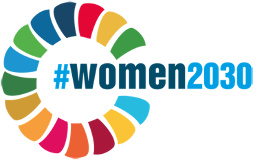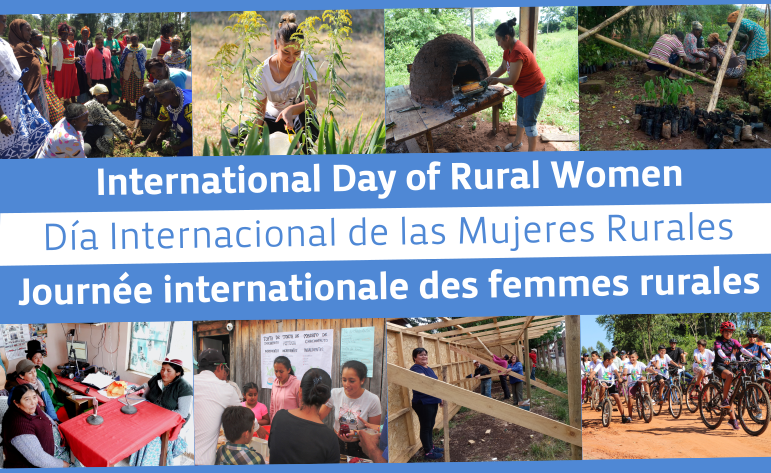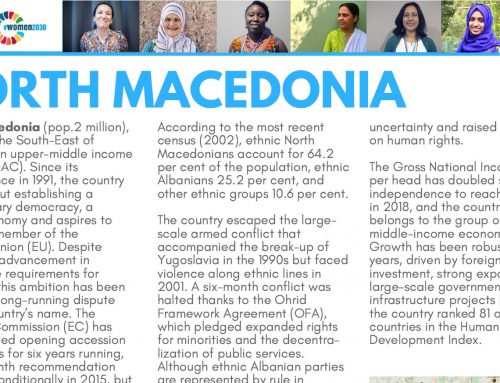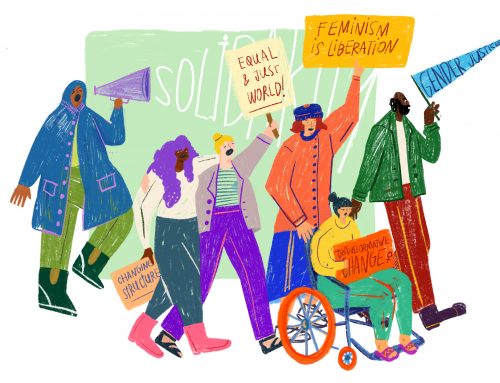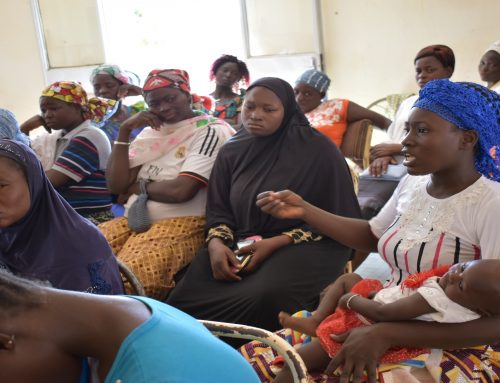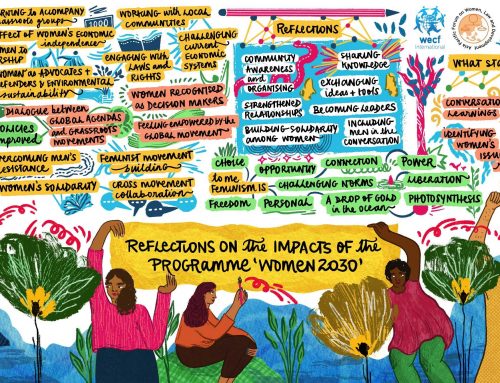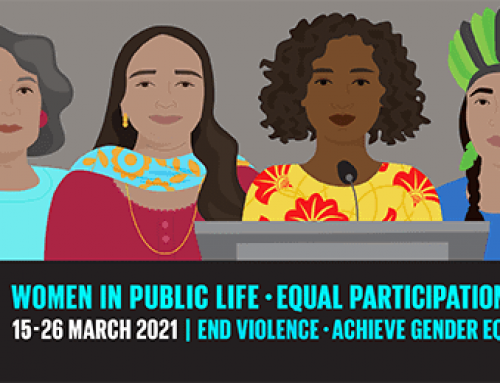Originally posted by the Global Forest Coalition in English, Spanish and French
October 15th marks International Day of Rural Women. Today, along with eight of our member groups, we are celebrating the role and invaluable contributions of women and girls all around the world towards protecting forests and biodiversity, producing healthy and sustainable food and providing for their families and communities.
However, rural women are still among the most vulnerable and marginalized groups, showing that there is much work to be done in the struggle for gender equality. As our member groups show, women are self-organizing to overcome these challenges, demand their rights and bridge the gender gap. At the same time, they are contributing to the well-being of their communities and the ecosystems they depend on, as well as the planet overall.
The photographs and descriptions below are a brief glimpse into the inspiring work that our member groups have been leading through the Women2030 programme. Over the past five years, Women2030 has worked with partners all over the world to build the capacity and strength of women’s rights organizations to advance local, national and regional gender-responsive sustainable development policies.
For more on the Global Forest Coalition’s work on women’s rights and empowerment, see our campaign page.
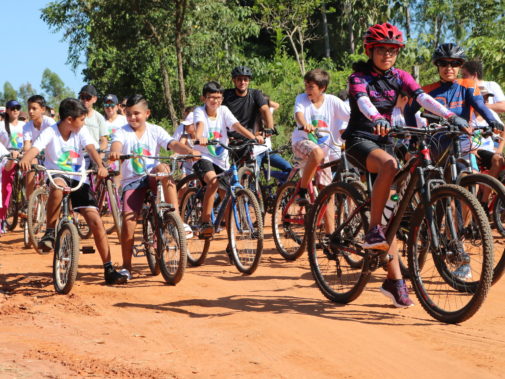 Women in Brazil and Paraguay are showing young people the importance of cooperation and conservation beyond borders
Women in Brazil and Paraguay are showing young people the importance of cooperation and conservation beyond borders
When communities come together for the same purpose they can build transformative change, support each other to take care of their environment and promote inter-generational and gender-equitable relationships. This conviction has inspired a group of women who are part of Grupo de Educadores Ambientales Sin Fronteras (GEASF) to lead cross-border and participatory socio-environmental education events in the two neighboring municipalities of Bela Vista (Mato Grosso do Sul, Brazil) and Bella Vista Norte (Paraguay). One event that is gaining popularity year after year is “Pedala Fronteira” (Frontier Pedal), a bike ride which has brought together mayors, teachers, community leaders, businesspeople and the media. In particular though, young people of all ages from both communities are the most enthusiastic participants. Through this event GEASF promotes dialogue, collaboration and respect between the different communities on local environmental problems, so that they can take better care of their trans-boundary environment, which includes biodiverse forests and the Apa River. These participatory events help young people to think and act towards an equitable and sustainable future.
Photo credit: Grupo de Educadores Ambientales Sin Fronteras
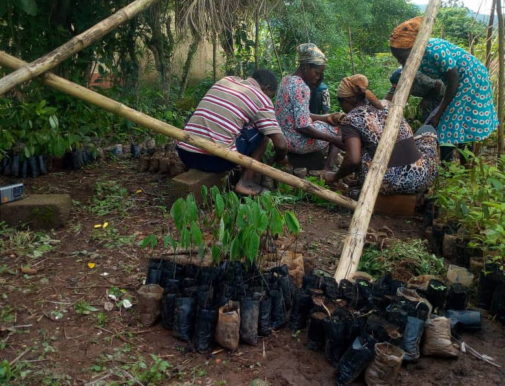 Women-led solutions to forest degradation in Ghana – leadership, empowerment and sustainable livelihoods
Women-led solutions to forest degradation in Ghana – leadership, empowerment and sustainable livelihoods
Women2030 partner The Development Institute (TDI) has been working with women’s rights groups in the Weto Range of the Upper Guinean Forest of West Africa in eastern Ghana through the Women2030 programme. Central to this work is valuing the role that women play in forest conservation and enhancing it through women’s leadership and empowerment, education and skill-sharing, and protecting livelihoods that are rooted in sustainable agricultural practices. Alongside biodiversity protection and income generation, the women’s association has been building women’s leadership capacity, particularly in relation to natural resource governance. One of the ways they have achieved this is through community radio, hosting talk shows on women’s empowerment and environmental issues and becoming a well-respected voice in the community. Women in the association now have the confidence to express themselves in community meetings and to approach decision-makers to advocate for their needs and rights. The women of Kpoeta are successfully restoring and protecting forests while also feeding their families and earning a living from their land. Each reinforces the other. They achieve this through self-organisation and despite the challenges they face, such as low levels of political representation and literacy.
Photo credit: The Development Institute
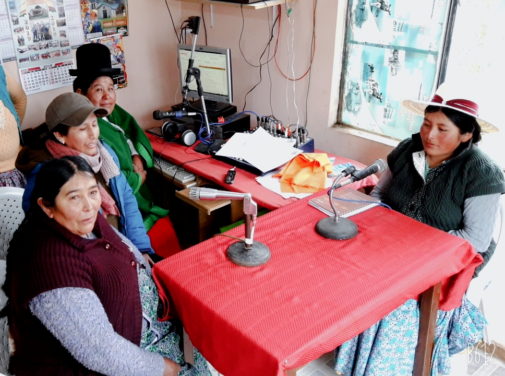 Rural women in Bolivia are self-organizing to overcome gender injustices
Rural women in Bolivia are self-organizing to overcome gender injustices
Rural women in the municipality of El Alto, Bolivia, face multiple forms of gender-based discrimination and inequality. The work they carry out through native tree planting, family farming, pastoralism and domestic care is neither recognized nor remunerated, and the demands of Indigenous peasant organizations for this work to be valued and supported are largely ignored. To overcome all of this, women’s groups are self-organizing. Groups like CIPCA, the Centro de Investigación y Promoción del Campesinado (Center for the investigation and promotion of peasantry), contribute by facilitating spaces for reflection and sharing experiences. Numerous initiatives to address gender inequality in rural areas have emerged from these spaces, including: encouraging the creation of new community-based economic organizations to support women’s agricultural livelihoods and seek new markets for their agroecological products; strengthening women’s productive capacities through diversification; and investing in technological innovations that reduce women’s workload. This also strengthens women’s economic independence, builds self-esteem and makes their central role in food production more visible.
Photo credit: CIPCA
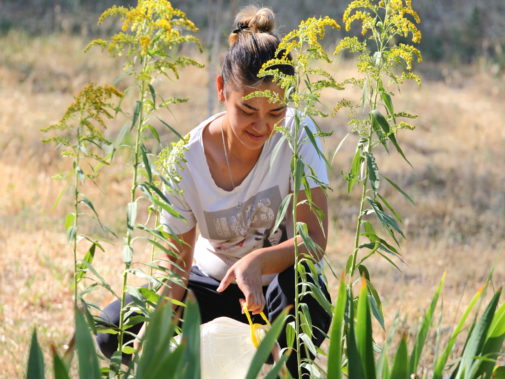 Women’s rights and traditional knowledge are crucial for conserving biodiversity in Kyrgyzstan
Women’s rights and traditional knowledge are crucial for conserving biodiversity in Kyrgyzstan
Women in Kyrgyzstan face numerous threats, from economic and political marginalisation and forms of gender-based violence such as bride theft, to mining and infrastructure developments that impact on their health and ability to grow food. With virtually no representation in local government and little power in household decision-making, civil society and women’s groups must organise themselves to overcome the challenges they face. Key to their success is rooting the struggle for women’s rights in ecological conservation and the sharing of traditional knowledge. In the remote region of eastern Kyrgyzstan known as Issyk Kul Oblast, the village of Darkhan sits a few kilometres away from the giant Kumtor gold mine. To counter the many impacts of the mine on local life and to increase their climate resilience, women activists in the village have planted over 500 native trees and fruit bushes. Planting takes time and care, but the women of Darkhan know that their efforts will benefit the whole community. By reducing winds and soil degradation and preserving native species, they are protecting the community’s ability to feed and care for itself.
Photo credit: Vlad Ushakov
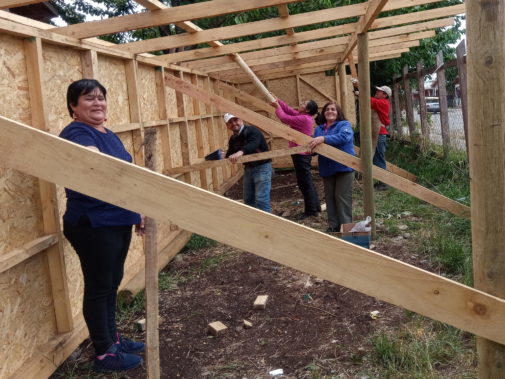 For Mapuche women, Küme Mongen (living well) is a way of resisting extractive industries and patriarchal colonialism
For Mapuche women, Küme Mongen (living well) is a way of resisting extractive industries and patriarchal colonialism
Chile’s Indigneous Mapuche women play a central role in promoting Küme Mongen (living well), the ancestral wisdom that puts life at the centre of their worldview. Küme Mongen recognizes the interdependence between men and women, between people and communities, and between these and nature. They are caretakers of local seeds and biodiversity, and ensure that traditional knowledge and culture, and in particular Mapuche medicine, is passed on to their children. They promote good nutrition and well-being, believing that prevention is better than cure when it comes to health. This way of thinking is gaining recognition among wider Chilean society thanks to the efforts of Mapuche women. For example, women members of the Trem Trem Mapu association train health workers in their regional health service and local hospital on natural and preventive medicine using plants from the forests. In order to continue raising awareness of Küme Mongen and to bring the countryside closer to the city, Mapuche women are building a communal house dedicated to the dissemination of Mapuche knowledge, a space where they can also sell their agro-ecological products, medicinal plants and handicrafts.
Photo credit: Colectivo VientoSur
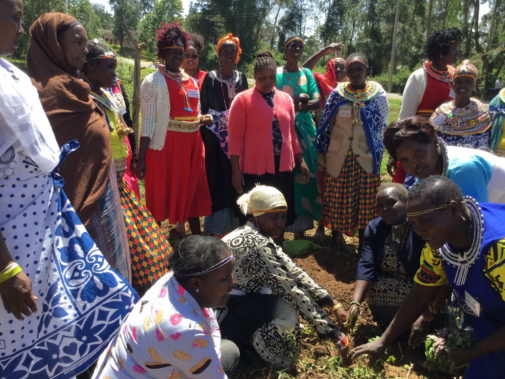 Land rights and livelihoods key to achieving sustainable development for Kenya’s indigenous women
Land rights and livelihoods key to achieving sustainable development for Kenya’s indigenous women
Indigenous women’s groups in Marsabit, West Pokot and Narok Counties in Kenya are protecting their community’s land, forests and livelihoods from the challenges they face. Through training and skillsharing amongst themselves, the women’s groups are exchanging ideas for income-generation, tackling women’s participation in local decision-making and overcoming food security challenges. Through self-organizing in their communities they are paving their own path towards realising their land rights and women-led, community-based livelihoods. Already looking ahead, they are working beyond their own communities to enhance networking and communications with other women’s groups further afield. Their objective is to strengthen the women’s movement at the local level and to influence county development agendas to include women’s priorities. They call for strengthening women’s advocacy networks at local and county level, with links to national level advocacy networks, ensuring that women’s voices can be heard at all levels of decision-making.
Photo credit: Lucy Mulenkei/Indigenous Information Network
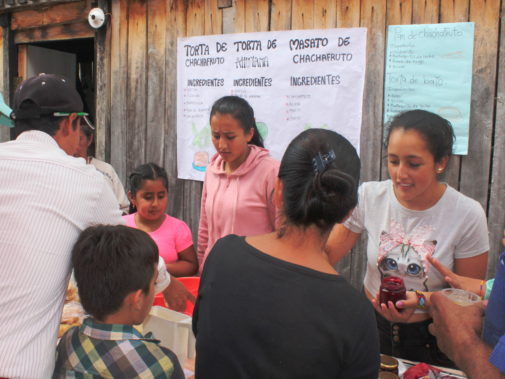 The work of women of the Peasant and Community Reserves Collective of Santander, Colombia: A real achievement in protecting land and creating alternatives for buen vivir
The work of women of the Peasant and Community Reserves Collective of Santander, Colombia: A real achievement in protecting land and creating alternatives for buen vivir
The women of the Peasant and Community Reserves Collective of Santander, Colombia, are making a vital contribution to community conservation as a real solution to the climate crisis. Through their energy and creativity they demonstrate that it is possible to conserve forests and achieve food sovereignty and diversity in production. The Reserves Collective is a set of associations of rural families in Santander created in 2008 that is based on community management of land. These are peasant communities with strong cultural bonds and traditional knowledge that coexist with the Andean forest. Several decades of armed conflict in Colombia have had a grave impact on communities and particularly women, who have had to assume responsibility for families and food production, as well as remaining in and protecting their territories. For them, it is clear that peace should not only be achieved between armed groups, but also in terms of more harmonious and less aggressive relations with nature and between women and men. Through their collective work, they provide examples of how to improve their economy and food sovereignty. They demonstrate that these forms of women-led self-organizing help to prepare their families to face new challenges, such as the pandemic that is causing hunger and homelessness among the marginalized populations of Latin America.
Photo credit: Fundaexpresión
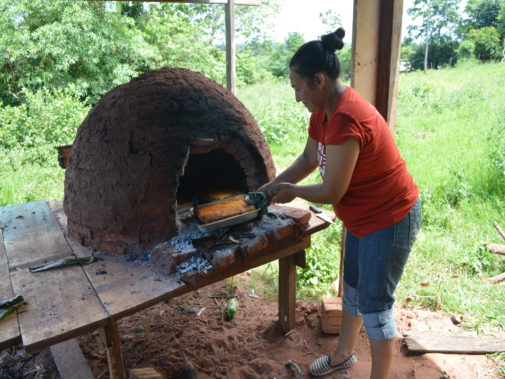 “They are only interested in soy”: how peasant and indigenous women in Paraguay are organizing to survive the twin threats of industrial agriculture and climate change
“They are only interested in soy”: how peasant and indigenous women in Paraguay are organizing to survive the twin threats of industrial agriculture and climate change
Peasant and indigenous communities in Paraguay are caught between a state-sponsored agribusiness industry that steals land and poisons the air, soil and water, and a climate emergency that puts even more pressure on their already fragile ability to feed themselves. With minimal external support but maximum threats to forests, land security, community health and food sovereignty, peasant and indigenous communities are organizing to reclaim control of their lives. Women are at the forefront of this resistance, and in particular they are strengthening their organizations through training and skill-sharing to tackle gender-based discrimination. Through organizations such as the Federación Nacional Campesina (National Federation of Peasants/FNC) and Coordinadora Nacional de Mujeres Campesinas e Indígenas (National Coordination of Peasant and Indigenous Women) peasant and indigenous communities, and in particular their women members, are working together to protect their food sovereignty, indigenous seeds, natural medicinal resources and traditional, ancestral knowledge. Faced with the twin threats of advancing monocultures and climate emergency, they are building their own resilience from the soil up.
Photo credit: Inés Franceschelli/Heñói

